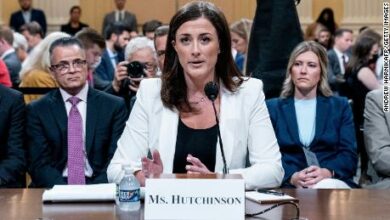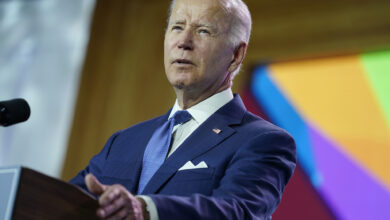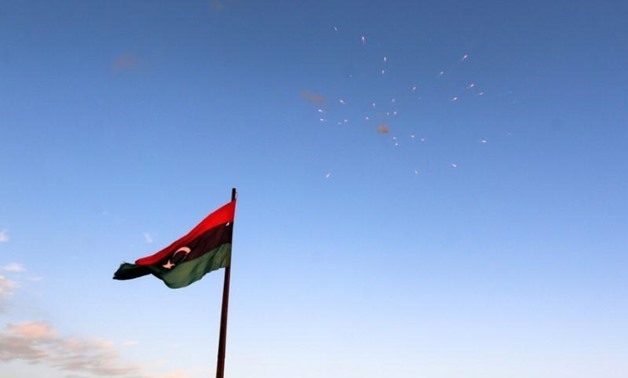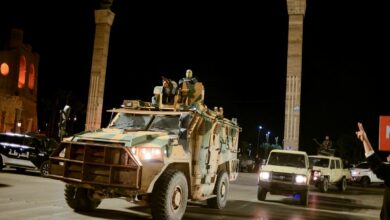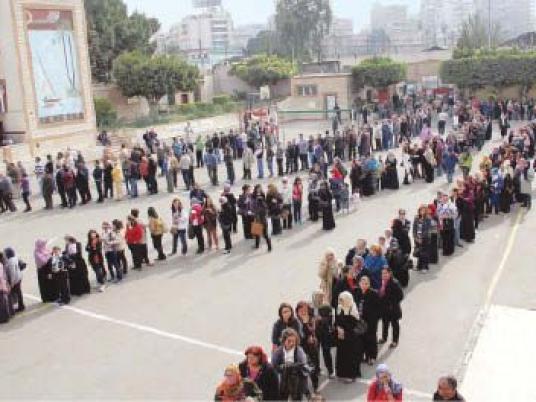
Ten governorates voted on Saturday on a draft constitution which emerged out of a tumultuous process characterized by divisions and controversy within and around the Constituent Assembly tasked with drafting the document.
The preliminary results show that 57 percent of those who participated approved of the draft while 43 percent rejected it. The participation rate is estimated to be a little less than 31 percent.
The Islamist forces, including the ruling Muslim Brotherhood and various Salafi fronts, promoted the draft while the non-Islamist opposition forces mobilized for a “no” vote. The results are thus seen as a reflection of the electoral prowess of the political forces entangled in the current battle, and a potential continuation and deepening of this rift.
Game changer
“[The results] represent the fall of all the lies the Brotherhood propagate, that they represent the Egyptian people while the opposition is just an elite group. This shows that the people have not given them an unconditional monopoly on legitimacy,” says Hussein Abdel Ghany, spokesperson for the National Salvation Front, a coalition of opposition forces and leaders.
Compared with other polls since the fall of Hosni Mubarak, the results of the referendum reflect a decline in the popularity of Islamist forces.
Last year, a referendum on constitutional amendments supported by Islamist forces passed with a 73 percent majority. Islamist forces continued their domination of the electoral game sweeping a majority of 70 percent in the parliament, which allowed them a controlling majority in the Constituent Assembly drafting the constitution.
“The results mean two things, that the political powers are now almost equal and that there is public anger festering against the Islamist hijacking of the state and the treatment of Egyptians as children who need to be disciplined,” says Abdel Ghany.
Mohamed Naeem, political analyst and member of the Social Democratic Party, says the results offer early indications of a smaller presence for Islamist forces in the next parliamentary elections. He says it is a sign of the gradual, continuous strengthening of the opposition, which entered the scene less than two years ago.
“Islamists will have the majority but not an absolute majority that allows them to do whatever they want,” he speculates on the results of the upcoming parliamentary elections.
However, Taher Abdel Mohsen, a member of the Freedom and Justice Party and Constituent Assembly, says the referendum is not an accurate measure of the Brotherhood’s popularity.
“You can’t measure popularity through a referendum where there are many other factors involved. In the next parliamentary elections where there will be direct competition, this is when popularity can be determined,” he says.
Additionally, he says that the popularity of the opposition remains concentrated in the cities. In the first round of the referendum, the “no” vote won in Cairo and the Delta governorate of Gharbiya, while the “yes” vote triumphed in the rest of the eight governorates that voted in the first round, with growing margins in the remote governorates of Sinai and Upper Egypt.
“Nobody wins elections with the capital. Cairo is not a measure, in villages and rural areas you will only find the big parties that truly blend with the public,” says Abdel Mohsen, claiming the opposition’s appeal remains limited to the elite.
It’s not over yet
The constitution drafting process marked the reenactment of a deep Islamist-secular rift in the Egyptian polity. Weeks before the Constituent Assembly finalized its work, almost all non-Islamist members withdrew in objection over the draft.
The state of polarization deepened when President Mohamed Morsy issued a constitutional declaration in November giving himself overreaching powers and making his decisions immune from judicial oversight.
The decree resulted in a division that materialized in bloody clashes earlier this month in front of the presidential palace. The opposition had called for the cancellation of the referendum arguing that the draft does not reflect the necessary consensus.
Although Morsy rescinded several articles of the controversial declaration, an ongoing societal rift is only expected to grow following the referendum.
“The constitution cannot function with such a low percentage of approval. Amendments have to be adopted,” says Naeem.
Allowing for fraud, which Naeem speculates affects 5-10 percent of the results, he says the outcome so far reflects a popular rejection of the draft. Additionally, he says the low turnout takes away from the already contested legitimacy of the process.
Abdel Mohsen disagrees. “The constitution will pass with a 62 to 63 percent approval rate. What more do they want?” he asks rhetorically.
Questioning the legitimacy of the entire process of the referendum, the opposition is gearing up for another attempt to amend the draft if it passes the referendum, saying the low rates of approval justifies their move.
The mechanisms for such amendments are unknown, however. In a pledge to solve the problem, Morsy said in a statement last Friday that changes to the current draft, if it passes, can be made through the Shura Council, which will then have legislative powers. However, the council in its current formation is overwhelmingly Islamist, which does not help resolve the rift.
But, while the opposition sees the low approval rate as a justification for its demand for amendments in the draft, Abdel Mohsen says this is out of the question.
“The instatement of the constitution is a purely legal process. Once it is passed, no-one, not even the president, has the power to amend it,” he says, adding that the only mechanism to amend the constitution will be through an elected parliament, as stated in the draft.
The Constituent Assembly has invited the opposition to a dialogue on Monday. However, Abdel Mohsen clarifies that the assembly aims to debate and defend the constitution, rather than make any changes.
“We want to defend the constitution that we put to the people. The opposition appears on television and we don’t get invited,” he says. “They are brainwashing people. Some say no without even reading the constitution.”
The next round of the referendum already faces hurdles that promise to cause even more questioning and perhaps rejection of the results. Following the first round, the opposition complained about several violations, mainly relating to the lack of judicial oversight in some polling stations as a result of a partial judicial boycott of the referendum.
On Monday, the State Council Judges Club, with its 3,000 members, announced it would boycott the next round of the referendum, saying the presidency failed to realize the promises it made to the judges prior to the referendum which included ending the siege of the Supreme Constitutional Court (SCC) by the president’s supporters and securing the judges while they oversee the referendum. Islamist supporters of Morsy have been camping outside the court’s building in response to presidential reports that the court intended to dissolve the Constituent Assembly, another episode in an on-going stand-off between the president and the SCC.
“This means that the second round will be even worse than the flawed first round,” says Naeem.
The National Salvation Front, which was formed in November uniting opposition figures and parties, issued a statement on Monday urging the Higher Judicial Elections Commission to review its reports of violations in the first round and postpone the second round until complete judicial oversight can be guaranteed.
Abdel Ghani says the front will decide on its course of action depending on the HJEC’s response.
No stability in sight
With a continued political crisis and a referendum that shows public opinion is almost split in half, both sides expect the political unrest to continue, with each blaming the other for the lack of stability.
Looming economic problems are expected to further exacerbate the issues, especially for those in power, with many contending that genuine dialogue is the only instrument left for the Brotherhood.
“We are not in a situation conducive to stability because of the crisis that the Brotherhood has put us in,” says Naeem. He adds that by putting a contested draft up for referendum, the Brotherhood has started a legitimacy crisis that will only be deepened by the low turnout and approval rate.
Additionally, he says the confrontation between state institutions that the constitutional decree triggered will also come in the way of achieving stability.
While he agrees that stability is far-fetched at this point, Abdel Mohsen blames it on the opposition.
He says the opposition is rejecting the constitution as a tool against the Brotherhood while their arguments against the draft itself are weak. He claims that some took a stance against the constitution simply to garner attention and popularity ahead of the upcoming parliamentary elections.
“We are now in a crisis. Whose interest are they promoting chaos for?” Abdel Mohsen says. “Things have to calm down and we all have to start the challenge of building the nation as fast as possible.”

